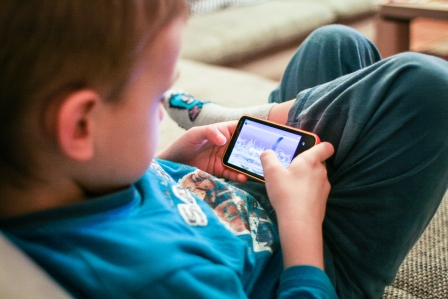
Have you noticed that when politicians in the US and Canada talk about education reform, the reason they provide for why change is necessary is because of what “the economy” needs. They tell us that the reason we need to change what happens in schools is because we need to grow the economy and the only way to do that is for schools to produce the kinds of workers that corporations want. Given the fact that there can be no economy without a healthy environment, isn’t this focus on what the economy needs a bit short-sighted?
In this age of climate change, shouldn’t we be asking what our environment needs and then preparing our children accordingly?
The children who entered kindergarten in 2014 will be graduating in 2027. Although we cannot predict with any certainty what the economy will be like then, thanks to the work of thousands of scientists over many decades, we now have a good idea of what the physical world will be like within a few decades if the gathering in Lima, Peru this week fails to make definitive decisions about mitigating climate change.
There are a few future scenarios that we have to consider in thinking about the world current kindergarteners will graduate into.
One is the scenario painted in exhaustive detail by the the IPCC, the Intergovernmental Committee on Climate Change. In this scenario, any economic policies based on constant growth will be rendered void by the pervasiveness of extreme drought, extreme floods and extreme heat leading to food shortages, among other things. There can be no work done for “the economy” if the workers have no food to eat.
Should our kindergarteners therefore learn how to grow food in extreme conditions?
Another future scenario is painted by the Pentagon which has said that climate change will be a “threat multiplier”, increasing political instability around the planet.
Should we prepare our children then for constant war on an overheated planet where people fight desperately for access to food and water?
There are more apocalyptic scenarios in a similar vein to the ones already mentioned. Scenarios that would turn the fiction of The Hunger Games into bleak fact.
But there are also other scenarios that are just as possible. Scenarios in which our 2014 kindergarteners graduate into a world where the cancer of constant economic growth has been routed and replaced with degrowth and economic policies that fit within the physical capacity of our planet.
To prepare our children for such a world, for the complete restructuring of our political, economic and social systems necessitated by the climate change crisis, we need a restructuring of our education systems so that collaboration, connection and creativity replaces the dominant paradigm of individualism and competition in schools.
An education system structured around connection, collaboration and creativity would, in addition to providing education in traditional literacies, prioritize a new set of literacies. These literacies – ecological, emotional, technological, critical and social – would be framed by ubuntu, the African concept that “I am because we are”.
A child educated in such an education system would graduate with ecological literacy skills to be able to ‘read’ the land, the sky and the oceans, with emotional skills to increase well-being and decrease stress, with skills that enable navigation of technological landscapes, with critical literacy skills to question political media and messages and with social skills that will decrease the possibility of conflict and increase the potential of working collaboratively.
A child educated in such a way would see the problems posed by climate change in a completely different way, just as the Net generation reads the world differently to those born before we got the Internet.
And we need new ways of reading our world. So many of us think of our environment as a thing that is “out there”, disregarding completely the fact that we humans grow out of the environment as an apple does from a tree.
There can be no apple if there is no tree.
We are because the earth is.
This should be what we teach our children, this above all.
If all the delegates meeting this week in Lima, Peru, knew this and acted upon it, we would not have to fear that the scenarios posited by the Pentagon and by the IPCC could come true.
So much depends on that meeting in Peru because this week is when we begin to create the world that our current kindergarteners will graduate into.









